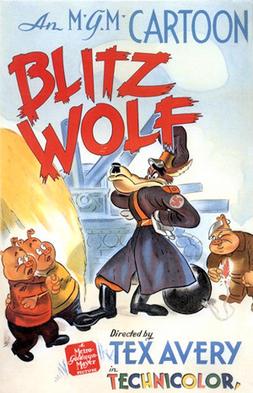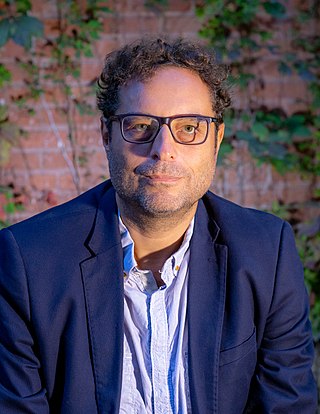Related Research Articles

The National Film Board of Canada is a Canadian public film and digital media producer and distributor. An agency of the Government of Canada, the NFB produces and distributes documentary films, animation, web documentaries, and alternative dramas. In total, the NFB has produced over 13,000 productions since its inception, which have won over 5,000 awards. The NFB reports to the Parliament of Canada through the Minister of Canadian Heritage. It has bilingual production programs and branches in English and French, including multicultural-related documentaries.
Roman Kroitor was a Canadian filmmaker who was known as a pioneer of Cinéma vérité, as the co-founder of IMAX, and as the creator of the Sandde hand-drawn stereoscopic 3D animation system. He was also the original inspiration for The Force. His prodigious output garnered numerous awards, including two BAFTA Awards, three Cannes Film Festival awards, and two Oscar nominations.
The History of Canadian animation involves a considerable element of the realities of a country neighbouring the United States and both competitiveness and co-operation across the border.

Neighbours is a 1952 anti-war film by Scottish-Canadian filmmaker Norman McLaren for the National Film Board of Canada. In 1953, it won the Oscar for Best Documentary, Short Subject.

Three Little Pigs is a 1933 animated short film released by United Artists, produced by Walt Disney and directed by Burt Gillett. Based on the fable of the same name, the Silly Symphony won the 1934 Academy Award for Best Animated Short Film. The short cost $22,000 and grossed $250,000.
Colin Archibald Low was a Canadian animation and documentary filmmaker with the National Film Board of Canada (NFB). He was known as a pioneer, one of Canada's most important filmmakers, and was regularly referred to as "the gentleman genius". His numerous honors include five BAFTA awards, eight Cannes Film Festival awards, and six Academy Award nominations.

Blitz Wolf is a 1942 American animated propaganda short film produced and distributed by Metro-Goldwyn-Mayer. A parody of the Three Little Pigs told via a World War II perspective, the short was directed by Tex Avery and produced by Fred Quimby. It was nominated for the Academy Award for Best Short Subject: Cartoons but lost to Der Fuehrer's Face, another anti-Nazi World War II parody featuring Donald Duck.
Clito "Clyde" Geronimi, known as Gerry, was an American animation director. He is best known for his work at Walt Disney Productions.
City of Gold is a 1957 Canadian documentary film by Colin Low and Wolf Koenig, chronicling Dawson City during the Klondike Gold Rush. It made innovative use of archival photos and camera movements to animate still images, while also combining narration and music to bring drama to the whole. Its innovative use of still photography in this manner has been cited by Ken Burns as the source of inspiration for his so-called Ken Burns effect, a type of panning and zooming effect used in video production to animate still images.

The Romance of Transportation in Canada is a 1952 animated short film made by the National Film Board of Canada. Part of the postwar Canada Carries On series, it offers a humorous account of the history of transportation in Canada. The film was directed by Colin Low and produced by Tom Daly.

Theodore Asenov Ushev is a Bulgarian animator, film director and screenwriter based in Montreal. He is best known for his work at the National Film Board of Canada, including the 2016 animated short Blind Vaysha, which was nominated for an Academy Award. He is a Chevalier of the Ordre des Arts et des Lettres of France.

Gerald Potterton was a Canadian director, animator, producer and writer. He is best known for directing the cult classic Heavy Metal and for his animation work on Yellow Submarine.
Hot Stuff is a 1971 animated short directed and animated by Zlatko Grgic and written by Don Arioli. Produced by the National Film Board of Canada for the Dominion Fire Commission, a department of Public Works Canada, the nine-minute short on fire safety offers a humorous look at the origins, benefits and dangers of fire.
Wolf Koenig was a Canadian film director, producer, animator, cinematographer, and a pioneer in Direct Cinema at the National Film Board of Canada.

Thomas Cullen Daly was a Canadian film producer, film editor and film director, who was the head of Studio B at the National Film Board of Canada (NFB).

Joseph (Joe) Koenig is a Canadian filmmaker and entrepreneur who was the founder and president of Electronics Workbench.
John Spotton C.S.C. was a Canadian filmmaker with the National Film Board of Canada.
Robert Verrall is a Canadian animator, director and film producer who worked for the National Film Board of Canada (NFB) from 1945 to 1987. Over the course of his career, his films garnered a BAFTA Award, prizes at the Cannes Film Festival and Venice Film Festival, and six Academy Award nominations.
Stanley Jackson (1914–1981) was a Canadian film director, producer, writer and narrator with the National Film Board of Canada (NFB).

Revolting Rhymes is a 2016 British animated fantasy comedy drama television film written for the screen and directed by Jakob Schuh and Jan Lachauer, based on the 1982 book of the same name written by Roald Dahl and illustrated by Quentin Blake.
References
- ↑ "Wolf Koenig". Canadian Film Encyclopedia. Film Reference Library. April 5, 2004. Archived from the original on 12 October 2007. Retrieved 19 November 2009.
- ↑ Lenburg, Jeff (2006). Who's who in animated cartoons: an international guide to film & television. Milwaukee, WI: Applause Theatre and Cinema Books. p. 185. ISBN 978-1-55783-671-7.